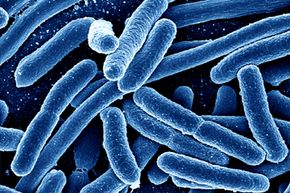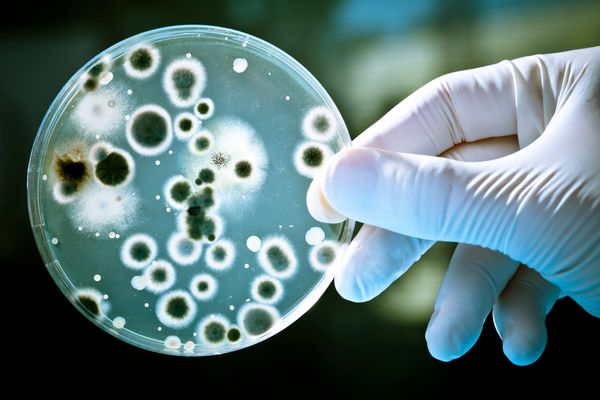When the Human Microbiome Project launched in 2007, nobody was quite sure what would be found. While we understood that bacteria occupy our bodies, we've never been clear about what resided where, and what function it might serve.
If there is anything the first phase of the HMP taught us, it's that eliminating microbes is not helping us fight disease or infection. While chatty TV shows may warn that E. coli is on every playground and MRSA is just a dirty mouse click away, the truth is that many microbes are doing us a lot of good.
Advertisement
And some of the evidence for that is right under your nose -- and on your eyelashes and in your gut, on your skin and anywhere else you can think of. There are 10,000 species of microorganisms hanging out in and on our bodies, and if that doesn't impress you, try this on for size: For every human cell, there are 10 bacterial and microbial friends hitching a ride [source: Coombs].
Sure, some microbes are bad news. Take our nasty little friend Clostridium difficile. C. diff is a bacterium that causes inflammation of the colon, which leads to debilitating diarrhea, nausea, fever and stomach pain. But here's the thing: taking antibiotics isn't necessarily going to treat C. diff, because they kill the good bacteria in the gut as well. In fact, C. diff can take hold after people use antibiotics, when all the good stuff is dead and C. diff can flourish in its place.
Enter the fecal transplant (or, more recently, the introduction of fecal pills).
It's a classic case of using good microbes to fight bad microbes. Introducing healthy fecal bacteria into the gut has showed a stunning reversal of the C. diff colonies: There are estimates that 90 percent of C. diff cases can be resolved with fecal transplants or supplements. (And do know that while colonoscopies or a nasal tube have been the not-so-appetizing method for a while, there is hope now in the form of frozen fecal pills [source: Oaklander]. You can just gulp the good microbes down, in other words, with a glug of water. No fecal matter to force down your gullet ... or elsewhere.)
So we're definitely using microbes to fight disease and probably going to use them more as we discover all the ways microbes affect — and possibly treat — our bodies.
Advertisement

